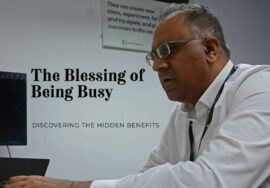
The unwritten rules in an organisation and its effects
The unwritten rules in an organisation and its effects
I am sure you would have noticed that many people and the media are currently up in arms about Elon Musk letting go of people at Twitter following his recent acquisition of it. I am sure that some elements of cost cutting are driving this but predominately I believe it is about setting the culture of the business going forward and about managing expectations.
For many of us this is slightly going against the grain as we believe and subscribe to the view that effective and engaged team members are the key to business productivity and therefore success. The saying often goes that the happier and more engaged your team is, the more your organisation will likely flourish. Many organisations whether they are international or regional are on a mission to help transform the way their team think about their work by creating an environment where people have a sense of belonging and they are given the tools and support to make meaningful change and deliver results with impact.

It goes full circle in a way as high-retention workplaces tend to employ more engaged team members who, in turn, get more done. Engaged staff are more likely to improve customer relationships, and teams that have had time to come together and feel that they belong also tend to be more productive.

Well, how does this fit in with letting go of staff and maintaining a high-performance culture?
Well, when it comes to retention, this isn’t just about retaining and engaging people within the business, in fact it is slightly broader as retention is also about retaining the culture of the business and ensuring the culture isn’t disrupted negatively. This is where the saying that ‘One Bad Apple Spoil a Bunch’ is often true.

Despite every organisation and leaders’ best efforts certain ‘bad apples’ will exist. In every business there is a person or several individuals who damage the business and at times it’s not completely obvious as they maybe initially unseen and unrecognised as the bad apples, sometimes fatally until it’s too late. This is not about scaremongering but it’s important to protect the culture of the organisation to exit them out as soon as possible to retain the culture of belonging for all and performance for the business.

Company culture is the foundation of business success. A company culture is the combination of vision statements and values, combined with the harder-to-see norms, behaviours, languages, beliefs and systems – often referred to as the company’s unwritten rules.

Unwritten Company Rules are people’s perception of ‘this is the way we do things here’ They drive people’s behaviour, yet they are rarely openly talked about.
These unwritten rules can be positive or negative. Positive rules underpin teams that are positive, lean and agile. On the other hand, if a team is not functioning well and there is a great deal of internal conflict, there is no doubt that negative unwritten rules will be in place.
These unwritten company rules are created in several ways – people watch what gets noticed, people watch what doesn’t get noticed and people watch for any differences in terms of what people say and what they actually do.

Transparency is key, transparency is often the most difficult for some businesses to embrace – transparent businesses encourage the companywide flow of communication and information, which can range from simple employee feedback to sharing profit and loss statements. Greater transparency brings together individuals and teams, putting everyone on the same page in forwarding the company’s mission and vision. This is a proven strategy for enhancing performance and retaining talented employees.

Organisations with good culture find ways to empower team members to make correct decisions themselves, rather than having to be reined in by management and the one of the best examples of this is Netflix with their “act in Netflix’s best interests” statement.

We all are beginning to realise more now that there is often no one solution to everything and no one-size that fits-all. We are all on a journey where we are re-examining our beliefs and challenging set notions, what may have worked in the past, possibly likely won’t work now. Retention is great but retention of company culture is greater, and we all need to move forward in way where there is a meaningful connection between us all.
- Awards (1)
- Business (27)
- Corporate (3)
- Featured Articles (15)
- Finance (2)
- Leadership (4)
- linkedin (4)
- Management (18)
- Medium (22)
- My Articles (82)

























